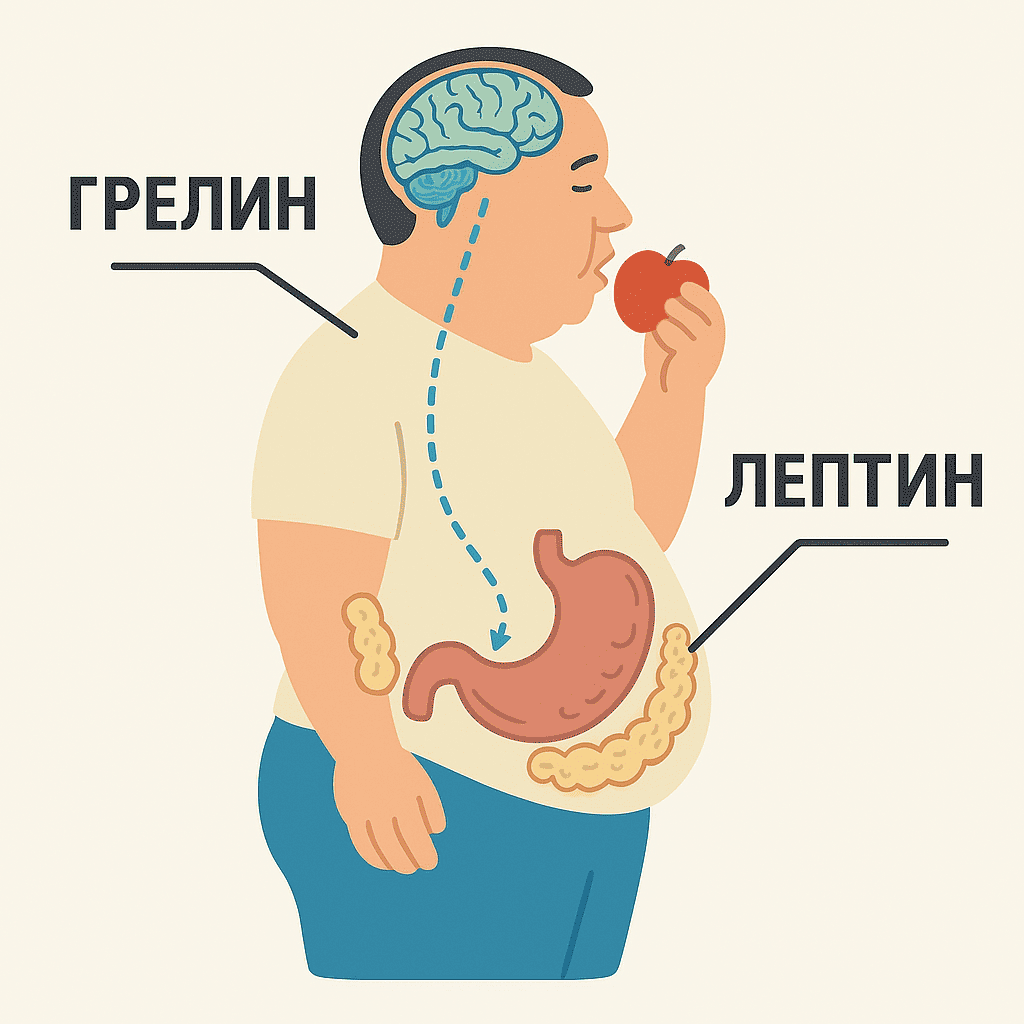
Did you know that your brain sometimes doesn’t hear the signal of satiety because of hormone imbalance?
Appetite is not only about habits or willpower. It is controlled by hormones that connect the stomach and the brain. The two key players are leptin and ghrelin.
✔ Leptin is produced by fat cells and tells the brain that there is enough energy. When leptin is high, you feel full.
✔ Ghrelin is produced in the stomach and makes you hungry. Its level rises before meals and falls afterward.
When their balance is disturbed, problems appear:
-
✔ Lack of sleep increases ghrelin and decreases leptin, making you hungrier.
-
✔ Stress reduces brain sensitivity to leptin, so satiety doesn’t “switch on.”
-
✔ Sedentary lifestyle and fast carbs boost overeating.
Scientists also describe leptin resistance. This happens when the body produces leptin but the brain no longer responds. The result is constant hunger, even with high energy reserves.
What helps restore balance:
✔ Proper sleep — even one night of sleep loss disrupts regulation.
✔ Regular physical activity — improves leptin sensitivity.
✔ Protein- and fiber-rich foods — they keep you full longer.
✔ A stable meal schedule — prevents sharp hormone fluctuations.
Balancing leptin and ghrelin is not about dieting. It’s a lifestyle foundation that helps control appetite and weight naturally.
Write a review
Required fields are marked with *
Categories
- News (34)
- Therapy (31)
- GP (23)
- Endocrinology (8)
- Cardiology (8)
- Ortopedics (4)
- Dermatology (3)
- urology (1)
- Check-up (1)
- Ultrasound (1)
Articles
Archive
- January 2026 (8)
- December 2025 (6)
- November 2025 (6)
- October 2025 (6)
- September 2025 (6)
- August 2025 (7)
- July 2025 (4)
- June 2025 (11)
- May 2025 (9)
- April 2025 (5)
Categories
- News (34)
- Therapy (31)
- GP (23)
- Endocrinology (8)
- Cardiology (8)
- Ortopedics (4)
- Dermatology (3)
- urology (1)
- Check-up (1)
- Ultrasound (1)









Comments (0)